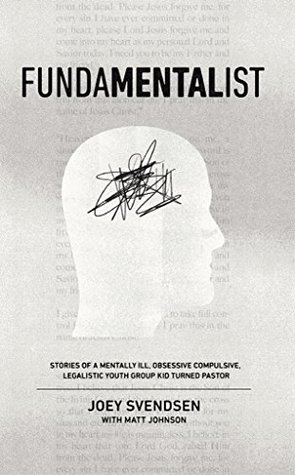More on this book
Kindle Notes & Highlights
Read between
December 23 - December 25, 2017
And for those facing depression: Yeah, your spouse, friend, coworker—they don’t understand what it’s like to suffer depression. But they’re having a difficult experience as someone who loves and cares for you, too.
Depression isn’t a poor reaction to life’s curve balls. It’s more like emotional smoke that causes poor reaction to life’s curve balls.
Depression can sometimes be avoided? Yes.
I can’t figure out if my depression is God’s intended purpose, and I guess I don’t care. I can’t assess an infinite God using finite measures.
All I can say is, I’m pretty sure Jesus is the answer for all depressed and non-depressed people, Christian and non-Christian people alike. He’s the dude, the hero for everyone. Maybe one day we’ll all be surprised about just how heroic He is.
Don’t ever assume a depressed person is slacking on troubleshooting their problem. Remember, depressed people are mentally and emotionally crippled and may not have the strength to do what is obvious to you. Instead, have some grace.
Often those with the gift of faith often have an extra helping of religious dogma on the side. This causes genuine fear in the face of God’s mysteries. You like black and white. You prefer to connect the dots. You like to put things in boxes. I get that, but the Bible that you use as your box says that God can’t be put in one.
It’s usually difficult to talk about depression when I’m depressed. I think the main reason for this is that the conversation typically brings added guilt knowing I negatively impact those I love. Ask, does it help to talk about it in the moment? Ask if I’d like to talk instead of forcing me to. If I’m not too low, I may be willing to.
For me, I have to try and resist feeling bad about hurting those I love. If I wallow in hurting others too long, it makes me more depressed and, in turn, may not benefit you at all.
Talk to trusted friends about depression. Find someone you can talk to openly about walking with someone with depression.
Ask, “Do you want to talk about it?” Don’t ask incessantly, but do ask once a day.
God works even in counterintuitive ways. Sometimes when we are at our limit, we have no other option but to turn to God. And situations that cause trust in God are a great gift.
Slowly but surely, I started getting used to following a God who wanted me. It was a gradual process, but peace started settling in.
I know, this stuff is elementary to most people. But it’s not elementary to a sick mind locked on a warped view of God.
As those who struggle with mental illness can tell you, depression is ruthless. It’s vicious because it even comes to tear apart your spiritual life.
I don’t have the strength to think about tomorrow. The beauty is I don’t have to be strong for tomorrow, either.
This is a life lesson that I’ll always have to go back to. And when I don’t, that’s on me. These instructions of Jesus are a gift to me. I either accept them and use the exact amount of strength that God gave me for today. Or, I try to muscle through today and tomorrow, a feat that God didn’t give me enough strength for. Tomorrow, I believe He’ll give me enough strength for tomorrow.
Believe it or not, through past experiences, yours truly has counseled others. I’ve found that being transparent about my personal mental illness sets something free in other people’s minds. I can’t count the number of hesitant people who fear being candid about their mental illness. That is, until I opened up. And then? Open the emotional floodgates. Because if a dude people call “pastor” is as sick as I am—and I can talk about it—then they’re that much freer to share their own struggles.
Leaders talk so much about the significance of leading well, but they rarely, if ever, talk with complete candor, openness, or honesty about their past and present struggles. I’ll let you in on a little secret. I’m not the only messed up leader in the church. There’s a lot of other mentally ill pastors.
We have a big problem on our hands. There’s a younger generation out there who have highly sensitive BS detectors. They’re usually tech-savvy, DIYers, grassroots-focused, organic-eating, people-centered, cause-driven, fake-shunning millennials. And they’re moving on from inauthentic relationships and institutions. They don’t trust people who avoid having their weaknesses exposed.
We present ourselves as having stuff figured out. We want to present ourselves as those who have theological and moral answers for the hurting. But this attitude completely counters the central message of for whom the church exists. We are all broken people in need. We are not answer suppliers.


